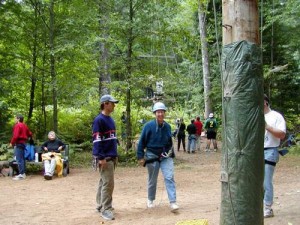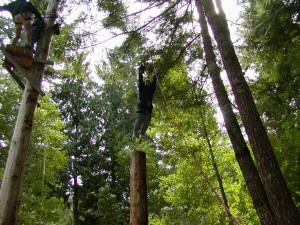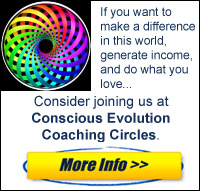Tools for Transformation – Ropes Courses
2013
Two Perspectives on Ropes Courses as a Tool for Transformation
Dr. Amit Nagpal, New Delhi, India, and
Dr. Janet Smith Warfield, Florida, USA
_______________________________________________________________________________________
Dr. Amit Nagpal’s Perspective
 If life itself is a rope walk, then what can be better to learn living than climbing ropes? Don’t we need the same gentle balancing act, the same courage, the same attitude to emerge as a winner in life, which we need for ropes courses?
If life itself is a rope walk, then what can be better to learn living than climbing ropes? Don’t we need the same gentle balancing act, the same courage, the same attitude to emerge as a winner in life, which we need for ropes courses?
Since my zodiac sign is Libra, balance has been a gift of the Universe. Since childhood, I had a natural flair for balance-balance in relationships, balance between work and (personal) life and so on. Balancing is an act which continues throughout the life or should I say balancing is something we do every moment.
A crucial skill for successful ropewalking is a sense of focus and an independent judgment. After all they say, obstacle is something you see when you take your eyes off your goals. Ropewalk has a goal but life needs a purpose and the purpose driven (or passion driven) will reach the goal sooner or later, and enjoy the journey for sure. So many times people will give you advice, which is coloured, either by their fear or their personal interest. But a successful ropewalker or lifewalker continues in a state of equanimity with his/her independent sense of judgment, neither overwhelmed by the cheer nor the fear (fears of others).
I have fallen off balance from the rope of life at times, but with a firm conviction that I gave my best and the belief that I strived for a balance even under that extreme condition or provocation. If I have come out of an experience with baggage, I have learned to observe myself and work sincerely to shed it. Even when my body refused to grow tall on its own, I have hung myself for hours on an iron rope, which I got hung on the ceiling.Life may be a rope, but I see hope. This is my mantra for happiness-give your best, leave the rest…to the Universe (OMG, this requires a balance of action and trust too).
____________________________________________________________________________________________________
Dr. Janet Smith Warfield’s Perspective
 As I pulled myself up the 20-foot-high pole, one metal support after another, a part of me was thinking, “Janet, You’ve got to be crazy! What do you think you are doing, jeopardizing your life climbing this pole and placing your trust in those people down below you don’t even know!”
As I pulled myself up the 20-foot-high pole, one metal support after another, a part of me was thinking, “Janet, You’ve got to be crazy! What do you think you are doing, jeopardizing your life climbing this pole and placing your trust in those people down below you don’t even know!”
Then, I remembered. My intention was to release my anger toward the father of my children who had abandoned both me and our children to spend his life with a woman I once thought was my best friend.
My helmet and harness were securely in place. My belay team were holding firmly to the ropes that would gently guide me back to earth if I lost my balance and fell. I was determined to do this.
 Climbing the pole was easy until my hand reached the last metal support near the top of the pole. Then I had to, some how, some way, get my feet up on top of the pole and stand up – without anything to support me.
Climbing the pole was easy until my hand reached the last metal support near the top of the pole. Then I had to, some how, some way, get my feet up on top of the pole and stand up – without anything to support me.
As I struggled to pull myself upright, I swung sideways off the pole. The ropes, held by my belay team and attached to my harness, stopped what would otherwise have been a disastrous fall. I could trust. Gently, my belay team lowered me down. Now I was more determined than ever to climb to the top.
Metal support after metal support, I climbed back up to the place where the supports ended. Somehow, I managed to get one foot up on top of the pole, then the other. Slowly, acutely aware of my balance, I stood upright. My belay team cheered loudly. Now I knew I could do it.
 For a moment, I stood tall, focusing with laser-like intention on what I had come to do: forgive the father of my children for deserting us. Then, I leaped into space, struck the celebration bell with my hand, and, with the support of my belay team, glided swiftly back to the ground.
For a moment, I stood tall, focusing with laser-like intention on what I had come to do: forgive the father of my children for deserting us. Then, I leaped into space, struck the celebration bell with my hand, and, with the support of my belay team, glided swiftly back to the ground.
I’d done it! Not only had I jumped from the top of a twenty-foot high pole. I had also let go of my judgment and blame. The transformation was huge and immediate. In the instant when I jumped, I became free to move on with the rest of my life.
____________________________________________________________________________________________________
Janet Smith Warfield serves wisdom-seekers who want understanding and clarity so they can live peaceful, powerful, prosperous lives. Through her unique combination of holistic, creative, right-brain transformational experiences and 22 years of rigorous, left-brain law practice, she has learned how to sculpt words in atypical ways to shift her listeners into experiences beyond words, transforming turmoil into inner peace. To learn more, go to wordsculptures.com, janetsmithwarfield.com, and wordsculpturespublishing.com.
____________________________________________________________________________________________________


![JanetSmithWarfield300[1]](http://janetsmithwarfield.com/wp2/wp-content/uploads/2011/11/JanetSmithWarfield3001-150x150.jpg)




Comment